A blueprint for health reform in Bangladesh
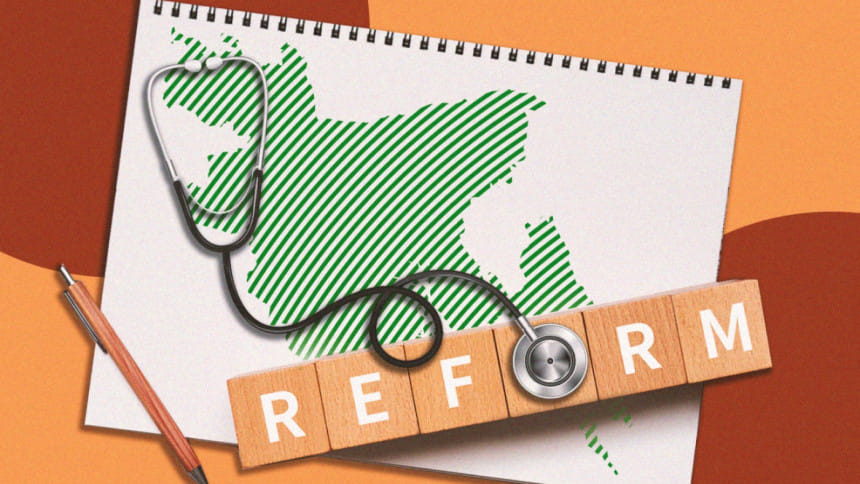
The recommendations of the government-constituted Health Sector Reform Commission represent a timely, comprehensive, and transformative initiative. These recommendations go beyond merely enhancing services or improving infrastructure. They call for a fundamental shift in perspective. At the heart of this transformation is the commitment to ensuring people-centric, universal, accessible, and high-quality healthcare. However, recommendations alone are meaningless without action. What is urgently needed now is a clear implementation roadmap and its effective execution.
A central proposal of the commission is to recognise primary healthcare as a constitutional right, ensuring that every citizen has access to free and equitable healthcare. The report recommends integrating existing primary healthcare facilities—union sub-centres, family welfare centres, and community clinics—into a unified service framework. This would address shortages in manpower and equipment, ensure efficient service delivery, and prevent confusion among service recipients. For urban populations, the establishment of ward-based primary healthcare centres is proposed. Additionally, the report suggests introducing creative health education programmes in schools and healthcare centres to foster health awareness among children and adolescents. Emphasising public health services, the commission recommends restructuring public health administration and clinical health administration into separate frameworks.
The commission proposes introducing specialised healthcare at the district level and advanced tertiary care at the divisional level to reduce Dhaka-centric patient travel. This would save time, money, and inconvenience. By separating public health and clinical administration into distinct, efficient structures, accountability and capacity in both sectors can be enhanced.
The commission recommends establishing a national health emergency service network for swift responses in crises. Similarly, creating national networks for pharmacies, blood transfusion, diagnostics, and patient transportation would ensure seamless and high-quality healthcare across all regions.
To address medicine shortages in public hospitals, the commission suggests introducing 24/7 pharmacies. It emphasises a transparent, centralised procurement system, promoting generic medicines, incentivising active pharmaceutical ingredient (API) production, controlling medicine prices, and ensuring quality through centralised oversight. The report also proposes mandating generic names in prescriptions, along with training and audits to ensure evidence-based prescribing practices.
The establishment of a National Women's Health Institute is proposed to provide women with centralised, high-quality, and specialised care for maternal and reproductive health.
The commission recommends setting a standard where every patient receives at least 10 minutes of consultation time with doctors. It also emphasises measuring service quality, implementing digital complaint mechanisms, and ensuring training and safety for healthcare workers.
To address leadership crises in health administration, the commission proposes forming an independent and permanent "Bangladesh Health Commission" as the apex body for policymaking, standard-setting, and oversight. Additionally, it suggests introducing a unified administrative framework called "Bangladesh Health Service" by merging the Directorate General of Health Services and Medical Education and Family Welfare Division. The commission also recommends establishing three divisions (public health, clinical services, and education) and 11 autonomous regional authorities, alongside decentralising administration at the district and upazila levels.
A separate "Public Service Commission (Health)" is proposed to make recruitment, promotions, and policies in the health sector more professional and transparent. The commission suggests forming a pay board to create a fair and incentivised salary structure for healthcare workers. It also recommends establishing a Food, Drug, and IVD Medical Device Administration to ensure expertise and safety in medicines and medical technology.
The commission recommends modernising curricula and training methods in line with the World Federation of Medical Education standards. It proposes closing substandard medical colleges, reducing political interference in education, introducing community and skill-based education, and establishing family medicine courses and continued medical education programmes.
The report advocates transitioning the entire healthcare system to a digital platform, introducing unique health IDs and electronic health records. It also proposes digital logistics and procurement systems to ensure transparency in supply chains.
The commission suggests strict policies, such as banning doctors from accepting gifts from pharmaceutical companies, regulating participation in conferences, mandating financial transparency for medical conferences, and prohibiting product promotion in doctors' chambers.
The commission proposes increasing the health sector budget to 15 percent and establishing a national health fund.
The report recommends gradually granting autonomy to the eight older medical colleges and specialised institutions. Public health institutions like NIPSOM, IEDCR, IPH, and IPHN should also be brought under policy-level autonomy.
Proposals include a "one-stop service" for licensing and administrative processes of private healthcare institutions, quality-based grading systems, management boards led by senior doctors, and public-private partnerships to reduce dependency on foreign healthcare and establish advanced services.
Implementing a reform programme is a significant challenge for any government, but it is particularly complex for an interim government. Structural or policy reforms are not merely administrative decisions. They require clear political commitment, typically outlined in party manifestos before elections. An interim government naturally lacks this political groundwork. Additionally, with national elections likely in early 2026, the few months remaining are insufficient for fully implementing structural reforms.
Nevertheless, despite these constraints, some policy reforms can be initiated. For instance, restructuring the primary healthcare system, establishing a permanent health commission, and forming the "Bangladesh Health Service" could be started immediately. Such initiatives would serve as a positive precedent for the interim government and lay a foundation for future governments.
Some initiatives can be launched through simple government orders (GOs), such as integrating primary healthcare services in rural areas and establishing an effective referral system, as well as introducing primary healthcare with referral systems in urban areas through administrative directives.
However, certain critical areas require legislation or ordinances, such as establishing a permanent health commission and the "Bangladesh Health Service" as a professional and impartial administrative framework. These proposals need to be implemented through legal and institutional frameworks, not just policy decisions.
Additionally, some reform initiatives require finalising frameworks beforehand, such as drafting the structure and operational guidelines for the "Bangladesh Health Commission" and "Bangladesh Health Service." A technical committee should be formed to finalise these drafts and prepare necessary ordinances.
Furthermore, an inter-ministerial high-level steering committee, comprising advisers of the interim government, is needed to provide guidance and ensure coordination among relevant ministries and departments. Crucially, both the technical and steering committees should operate under the direct supervision of the Chief Adviser's Office, not the Ministry of Health and Family Welfare (MOHFW), to avoid administrative bottlenecks and conflicts of interest, as past experiences suggest.
Dr Syed Abdul Hamid is professor at the Institute of Health Economics at the University of Dhaka, and convener of Alliance for Health Reforms Bangladesh (AHRB) and Network for Healthcare Excellence (NHE).
Views expressed in this article are the author's own.
Follow The Daily Star Opinion on Facebook for the latest opinions, commentaries and analyses by experts and professionals. To contribute your article or letter to The Daily Star Opinion, see our guidelines for submission.

 For all latest news, follow The Daily Star's Google News channel.
For all latest news, follow The Daily Star's Google News channel. 



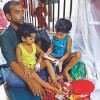

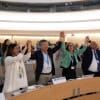
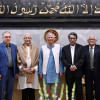
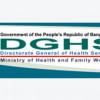


Comments